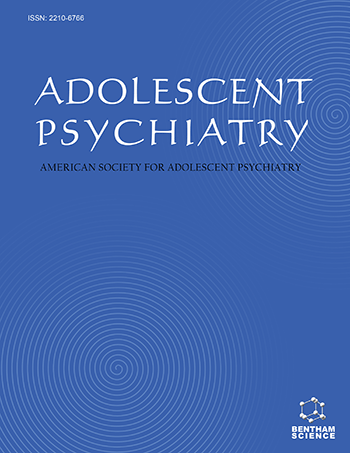Abstract
Interventions to reduce the likelihood of relapse, or a return to substance abuse after a period of abstinence, are important components of substance abuse treatment. Treatment interventions for adolescence with substance use disorders should incorporate principles of relapse prevention. The relapse prevention model advanced by Marlatt and Gordon and others in the addiction field is a self-control model, based on a cognitive-behavioral approach. This model stands in contrast to a disease model, which many in the medical field have adhered to. This paper presents a summary of the key features of Marlatt and Gordons cognitive-behavioral approach to relapse prevention.
Keywords: Alcohol use disorders, treatment, substance use disorders, Interventions, relapse, abstinence, relapse prevention, addiction, self-control, cognitive-behavioral
Adolescent Psychiatry
Title: Relapse Prevention
Volume: 1 Issue: 2
Author(s): Richard Rosner
Affiliation:
Keywords: Alcohol use disorders, treatment, substance use disorders, Interventions, relapse, abstinence, relapse prevention, addiction, self-control, cognitive-behavioral
Abstract: Interventions to reduce the likelihood of relapse, or a return to substance abuse after a period of abstinence, are important components of substance abuse treatment. Treatment interventions for adolescence with substance use disorders should incorporate principles of relapse prevention. The relapse prevention model advanced by Marlatt and Gordon and others in the addiction field is a self-control model, based on a cognitive-behavioral approach. This model stands in contrast to a disease model, which many in the medical field have adhered to. This paper presents a summary of the key features of Marlatt and Gordons cognitive-behavioral approach to relapse prevention.
Export Options
About this article
Cite this article as:
Rosner Richard, Relapse Prevention, Adolescent Psychiatry 2011; 1 (2) . https://dx.doi.org/10.2174/2210676611101020131
| DOI https://dx.doi.org/10.2174/2210676611101020131 |
Print ISSN 2210-6766 |
| Publisher Name Bentham Science Publisher |
Online ISSN 2210-6774 |
 28
28
- Author Guidelines
- Graphical Abstracts
- Fabricating and Stating False Information
- Research Misconduct
- Post Publication Discussions and Corrections
- Publishing Ethics and Rectitude
- Increase Visibility of Your Article
- Archiving Policies
- Peer Review Workflow
- Order Your Article Before Print
- Promote Your Article
- Manuscript Transfer Facility
- Editorial Policies
- Allegations from Whistleblowers
Related Articles
-
Risk Factors for Suicidal Ideation Among High School Students in Istanbul
Adolescent Psychiatry Internet and Video Game Addiction: Evidence & Controversy
Adolescent Psychiatry High Risk Driving in Treated and Untreated Youth with Attention Deficit Hyperactivity Disorder: Public Health Implications
Adolescent Psychiatry Freud Meets Bill W: A Model for the Dynamics of Alcoholics Anonymous
Adolescent Psychiatry Improvement in Cognitive Abilities, Mental and Emotional Wellbeing of Teenagers following a Meditation Retreat: An Open- Trial Pilot Study
Adolescent Psychiatry Proceedings of the Regional Conference of the International Society for Adolescent Psychiatry and Psychology (ISAPP), a Joint Conference with 18<sup>th</sup> National Symposium of Adolescent Mental Health, Ankara, Turkey, November 21-24, 2013<sup>1</sup>
Adolescent Psychiatry Does Physician Continuity Within a Clinical Trial Increase Retention and Compliance Among Adolescent Smokers?
Adolescent Psychiatry Albert Ellis Rational-Emotive Behavior Therapy
Adolescent Psychiatry Feasibility of Delivering a Cognitive Behavioural Therapy-Based Resilience Curriculum to Young Mothers by Public Health Nurses
Adolescent Psychiatry Child Protection Issues: Incest—the Malaysian Scenario
Adolescent Psychiatry Is Knowledge Enough? The Relationship Between Mental Health Knowledge and Stigmatising Attitudes Among Australian Adolescents
Adolescent Psychiatry Adolescent Inpatients with Depression: Comparison to Inpatients without Depression and to Peers without Psychiatric Disorders
Adolescent Psychiatry Treating Traumatic Stress in Children and Adolescents
Adolescent Psychiatry New Ways of Thinking and New Treatment Approaches
Adolescent Psychiatry Early Detection, Intervention, and Prevention of Psychosis Program: Rationale, Design, and Sample Description
Adolescent Psychiatry Psychological Distress Among Youth Probationers: Using Social Determinants of Health to Assess Suicidal Thoughts and Behaviors
Adolescent Psychiatry Pharmacologic Treatments in “Prodromal Psychosis:” Making Clinical Decisions in the Absence of a Consensus
Adolescent Psychiatry New Onset ADHD Symptoms in Adolescents and College Students: Diagnostic Challenges and Recommendations
Adolescent Psychiatry Remembrance and Historicization: The Transformation of Individual and Collective Trauma and its Transgenerational Consequences
Adolescent Psychiatry Editorial: Forty Five Years and Counting
Adolescent Psychiatry

























